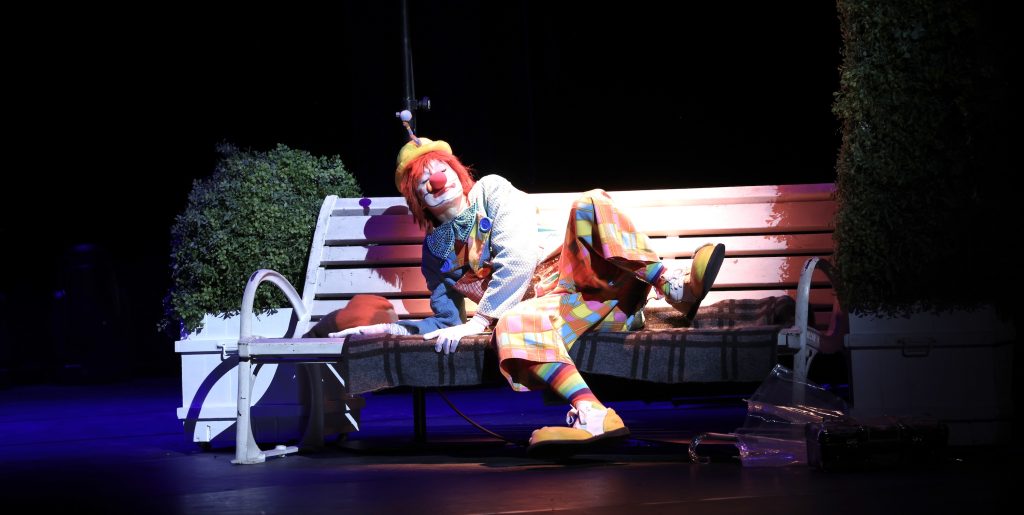
The Incredible Journey of Frankie
Francien Giraudi is the founding president of a Monégasque Association “The Children of Frankie”, “Frankie’s Children” which helps sick & needy children of Monaco and the PACA region (Provence-Alpes-Côte-d’Azur). Francien’s journey is a true inspiration from the Monaco of the 1970s to nowadays.
Long-time Monaco resident Francien Giraudi was born in London, UK, to an Anglo/Italian housewife and a Dutch father, Fons Lobker. Her father was a creative spirit—a journalist, photographer, artist painter, and occasionally a clown who entertained others. This would later influence Francien’s own life path in unexpected ways.
After her parents separated when she was five, Francien went to live with her grandmother in London. She graduated from St. Mary’s College in 1967 and then worked as an interpreter at Burberry for three years.
On her mother’s side, Francien came from a family of restaurateurs—another early clue to her dynamic future.
In 1973, during one of her travels in Italy, she met future husband Erminio Giraudi.
“I went to Italy to follow my mother who had remarried to an Italian man, thinking I’d only stay a few months before heading to New York. My best friend was already there, preparing to help me find a job.”
What job were you dreaming of at the time?
“Back then, every girl dreamed of working for Pan Am (Pan American World Airways) as a stewardess, flying around the world.”
During her short stay in Italy, Francien was offered a temporary job as an interpreter for a Dutch businessman.
“It was a good fit, since my father was Dutch. I had been raised with English values, so I was very serious when it came to work.”
As Francien continued working with the businessman, she began to question whether she should still pursue her move to New York. Then, unexpectedly, he offered her a full-time position.
“He needed someone to help with his business: a meat broker. At first, I didn’t really like the idea—I wasn’t interested in meat! And I still thought I was headed to America. But he convinced me to give it a try for a couple of months. And that’s how it began.”
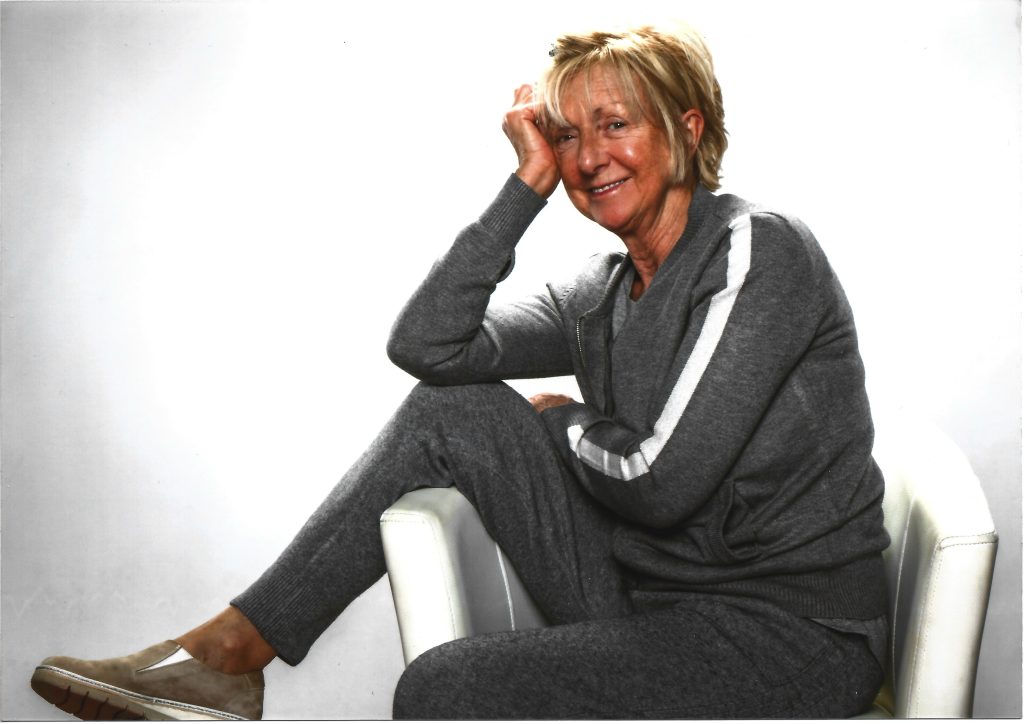
Those few months turned into a year. Then Francien was hospitalized with appendicitis. During her recovery, her boss, Erminio, came to visit.
“I was worried and asked him, ‘I hope you haven’t hired another secretary.’ He said, ‘I already have.’ My voice shook as I asked, ‘So what’s going to happen now?’ He simply replied, ‘We’re going to get married.’ Just like that—while I was lying in a hospital bed!”
How did such an unconventional proposal make you feel?
“I thought, this guy is mad,” – Francien laughs. – “There was no romance at all—but I suppose he saw the potential in me.”
Francien and Erminio married in 1975 and had two children, Riccardo and Brigitte.
Later that same year, the couple moved to Monaco, where they have lived ever since. Despite the language barrier, Francien quickly adapted to the local culture and lifestyle.
In 1980, she became Vice President of Les Voisins, an association supporting foreign residents in Monaco—a role she held for ten years.
In 1997, she joined UNICEF. That same year, driven by a personal calling to help vulnerable children, and with the guidance of Prince Rainier III, Francien founded her own association, Les Enfants de Frankie (Frankie’s Children), on November 21, 1997.
Through her ongoing work with the Monégasque community, Francien has become a beloved figure. In 2014, she was named Woman of the Year in recognition of her unwavering commitment to helping children in need.
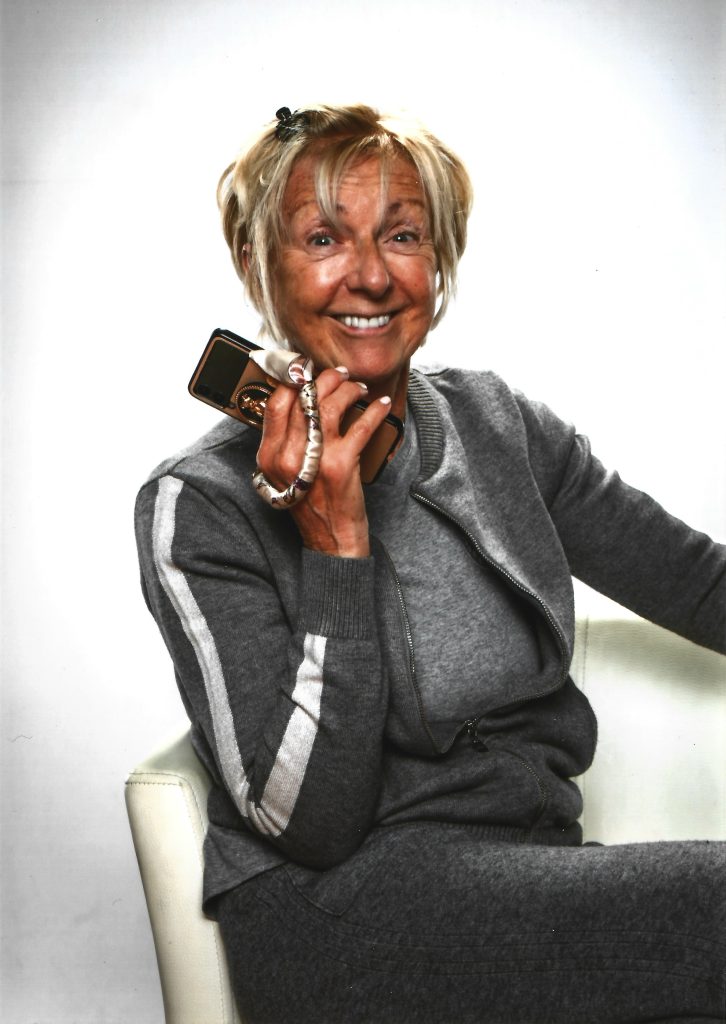
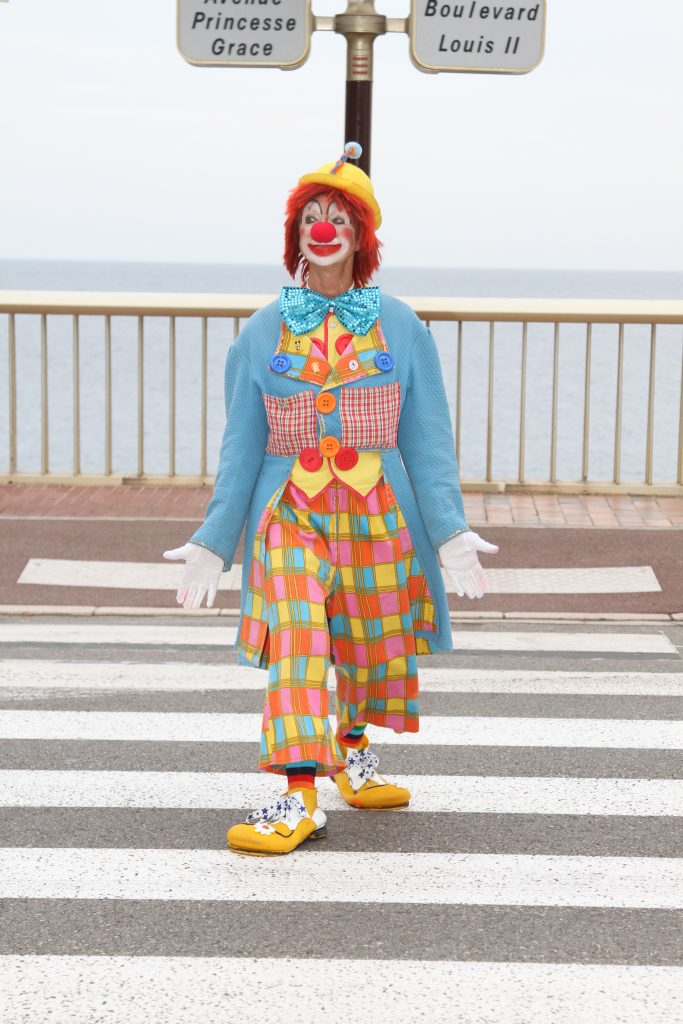
Settling Down in Monaco
In the ‘70s Italy’s, Red Brigades a far-left wing terrorist organization—or more accurately, urban guerrilla groups and political extremists—posed a serious threat. Their actions contributed to a period of intense social and political instability known as the Anni di Piombo or “Years of Lead.”
Groups such as the Red Brigades (Brigate Rosse) on the far-left, and neo-fascist organised group on the far-right, engaged in kidnappings, assassinations, and bombings. Their goal was to destabilize the Italian state, provoke revolution, or create a political crisis. Hence the kidnapping, and later the killing of Aldo Moro, the former Prime Minister and then the President of the Christian Democracy Party, was murdered after 55 days of captivity by the Red Brigade, with other 5 bodyguards in May 1978.
The resulting violence created a climate of fear, eroded public trust in government institutions, and left the country deeply divided. The state struggled to maintain control, and many feared the possibility of a coup or even civil war.
“In the 1970s, Italy was not a safe place, and the Red Brigades were worse than the Mafia,” – recalls Francien. – “Next to our house, there was a hotel where a personality was killed. That’s when my husband began to seriously worry about our safety—and our business.”
Kidnappings for both political and financial motives became widespread, targeting industrialists, politicians, and at times, ordinary citizens. This wave of criminality crippled industries, discouraged investment, and sparked widespread paranoia.
“We agreed to leave Italy,” – says Francien. – “Erminio suggested we move to Monaco, where he had just bought a small studio. As a businessman, he immediately saw the potential of relocating to the Principality.”
Francien and Erminio had hoped to marry in Monaco, but due to the administrative complications of an English and an Italian national marrying in the Principality, they decided to hold their wedding in Italy instead. However, Francien began to have second thoughts about Monaco.
“I became pregnant right after our wedding with my son Riccardo. Being in Italy, and with my maternal instincts kicking in, I started questioning whether Monaco was the right place to raise a child. Back then, the Principality offered fewer opportunities for children than it does today. I was particularly concerned about schooling and education for my newborn.”
Monaco in the 1970s was seen as one of the safest and most luxurious enclaves in Europe—a haven for the wealthy, the famous, and those seeking discretion.
Princess Grace (formerly Grace Kelly) was one of the most admired royals in the world, and her elegance deeply influenced the cultural image of the Principality in the ‘50’s and ‘60’s. Living in Monaco in the 1970s was a unique experience—glamorous, peaceful, and privileged, but also marked by the distinct contrasts between old-world Riviera charm and a rapidly modernizing society.
Monaco was very different in size and scale compared to today as its population was under 10,000. The Fontvieille district didn’t exist yet, Larvotto beach was not there either. The pace was slower, and the community was close-knit, with many residents knowing each other by name.
Despite the glamour, Monaco in the 1970s was conservative and quiet. Rules were strict, dress codes enforced, and public behavior expected to be proper—especially under Prince Rainier III’s governance, who sought stability over spectacle.
“In the 1970s, there was very little happening in Monaco,” – Francien reflects. – “Yet, we became residents in 1975 and made it our full-time home in 1979. By that time, I was blessed with my second child, my daughter Brigitte.”
Les Voisins
Living in Monaco, Francien quickly embedded herself into the local community and formed meaningful connections.
“I had met the secretary of H.S.H. Prince Albert II, and they were in the process of creating an association called Les Voisins,” – recalls Francien. – “The association was founded to support foreigners residing in Monaco, and their office happened to be right next door to us.”
In 1980, Francien became Vice President of Les Voisins, a role she held for ten consecutive years.
“My husband was always incredibly generous and supportive. He offered the first-floor apartment of the Millefiori building to Les Voisins. That gave us proper headquarters—rent-free,” – she says with a smile. – “With such a great office space at Millefiori, we were practically organising all of Monaco,” – Francien laughs. – “It was truly a beautiful time, and my heart shines when I think back to everything we accomplished together.”
A Legacy of Global Education
As a mother of two, Francien placed a high priority on the quality of education for children.
“I had a close friend, Sylvia Manasse, an ex-reporter for the New York Variety Magazine, and one day she came up with the idea of opening an international school,” – Francien recalls.
In 1994, the International American School of Monaco originated as the AIS in 1977 evolving into the ISM in 1990 and was founded with the support of Swiss-born banker and arts patron Gérard Cohen, who became a central figure in the school’s development and guiding vision.
“It began as a small, parent-led initiative welcoming just 34 students,” – says Francien.
Today, the International School of Monaco ISM stands as Monaco’s premier not-for-profit, co‑educational day school, serving over 830 students aged 3 to 18, drawn from more than 60 nationalities.
Ranked among the Top 15 schools in Europe and within the Top 100 worldwide, ISM continues to deliver top-tier academics and university-preparatory excellence. It emphasizes core values—integrity, caring, respect, and learning—with a unique bilingual curriculum (English and French in Primary; English in Secondary, with additional language offerings like Spanish, German, Russian, and Italian). Holistic services include mental health support, a robust PSHE programme, and a dedicated Head of Wellbeing.
Les Enfants de Frankie
While serving as Vice President of Les Voisins, Francien—who had always enjoyed working with the children of Monaco—began organizing various shows and events within the association.
“We had 400 members and over 200 children, and I was always in charge of organizing the end-of-year Christmas party. I was doing a lot,” – she recalls.
Francien’s dedication to helping children became even more personal after the birth of her second child, Brigitte, who was born with a problematic kidney disorder. Desperately trying to help her daughter, Francien pursued numerous surgeries across Europe—in Switzerland, Italy, the Netherlands, and France—but all attempts failed. Then, one day, she received a life-changing phone call from their doctor in Marseille.
“He told me they would need to redo the operation based on new insights from a pioneering surgeon, Professor H. Hendren of the Children’s Hospital in Boston Massachusetts.”
Ten days later, Francien boarded a plane to the Children’s Hospital in Boston with her daughter in her arms. Over the span of 10 years, Brigitte underwent 12 major operations, filled with emotional highs and lows. But that final surgery was a success—it saved her daughter’s life.
“For me, it was a life-changing, transformational moment.”
Upon returning to Monaco, Francien continued to organize Christmas parties for children, handing out presents with love and care. But something had changed in her heart.
“I was standing next to the stage, watching Father Christmas give gifts to the children, and I felt this overwhelming desire to be with them—not on the side. I wanted to be part of it. So I decided I would dress up too. I became a bear, a lion, a cat… but one year I dressed as a clown. And that was it—I had found my persona. I knew instantly: this was me.”
Her friend Sylvia, then President of Les Voisins, came to her and said, “I don’t see Francien anymore—you are a real Frankie!” The name stuck. It was, as Francien describes, like a miracle.
“I turned around and thought—yes, I am Frankie. That day, Frankie the Clown was born.”
With this new identity came new confidence and an even deeper purpose. Francien realized she could do much more, especially for children facing hardship.

“Interestingly, I later discovered that my father had also been a clown. I couldn’t believe it, because I was too young to remember him after my parents separated. But it made so much sense—it felt like destiny.”
On November 21, 1997, Francien founded her own association, “Les Enfants de Frankie” (Frankie’s Children).
For nearly three decades, she has dedicated herself tirelessly to the cause, leading the association with passion, humility, and a hands-on approach that puts her right at the heart of the action.
She is now widely recognized as a humanitarian leader and children’s advocate, always seeking to be as close as possible to the children she serves. The results are extraordinary: over 160,000 children and 75,000 families have received support from her charity.
Whether these children are seriously ill, living with disabilities, in distress, orphaned, or facing poverty, Francien has worked to provide them with moments of joy, comfort, and hope.
In 2002, she was invited to the United Nations General Assembly in New York for a session dedicated to children, accompanied by His Serene Highness Prince Albert II of Monaco, to defend children’s rights.
In 2008, she received recognition from the United Nations, granting her consultative status with the Economic and Social Council (ECOSOC).
The same year, Prince Albert II of Monaco awarded her the Knight of the Order of Grimaldi medal, and she also received the National Order of Merit from France for her outstanding service to the Nation.
In 2018, she extended her mission internationally by creating The Frankie Foundation for Children in England and Wales.
Yet, the most cherished day of the year for Francien remains Frankie’s Christmas, a magical event that has taken place annually since 1997. Each year, thousands of disadvantaged children are invited to Monaco for a day of celebration, laughter, and joy—complete with a specially designed show and, of course, gifts for all.
“It’s not just an event,” – Francien says, – “it’s a moment where we remind each child that they are seen, they are special, and they are loved.”
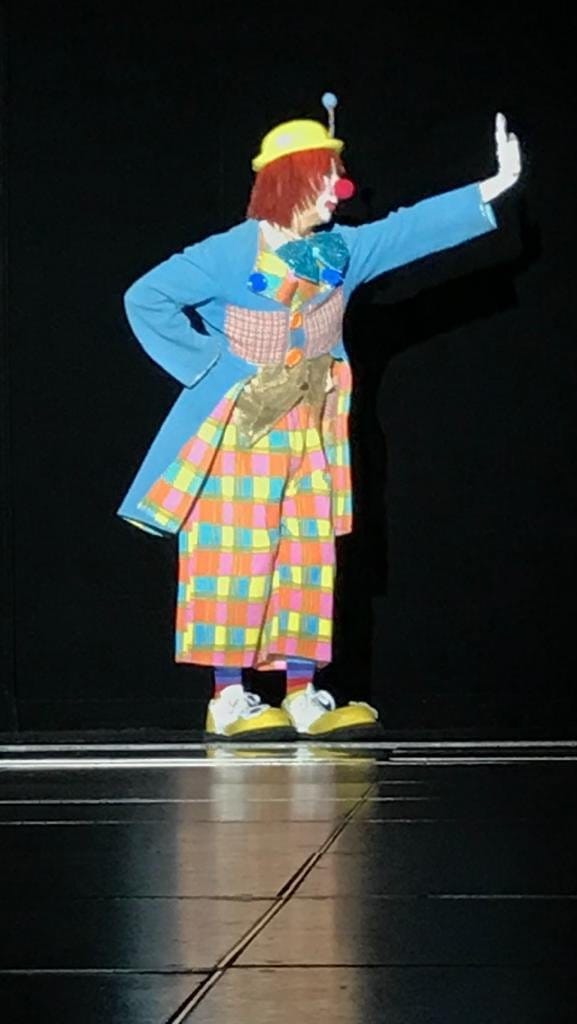
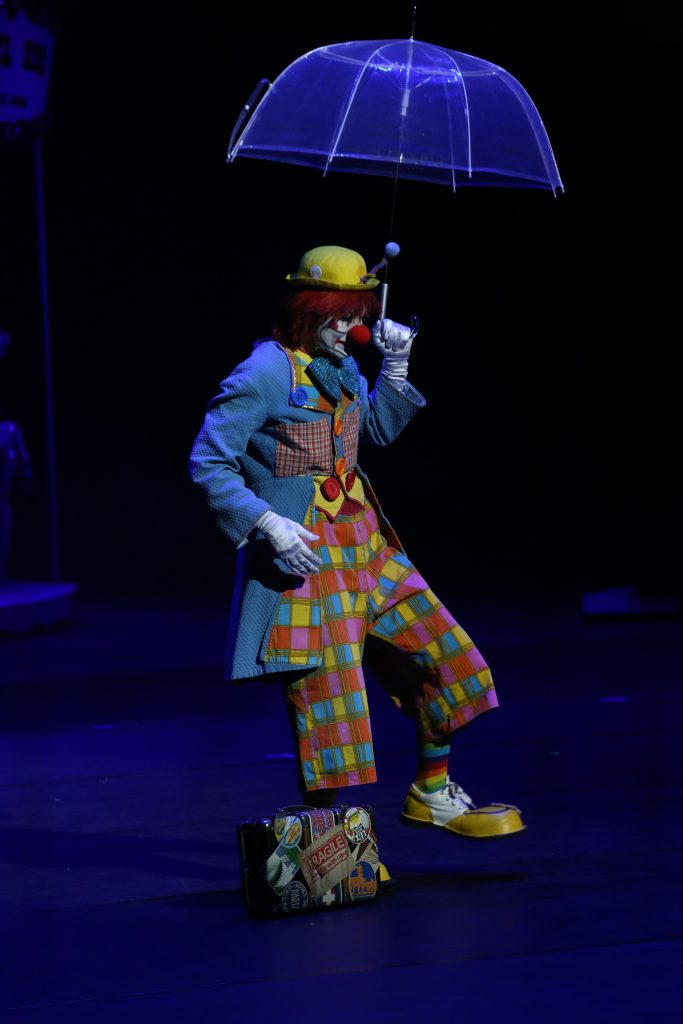
Success Through Motivation
What was the biggest challenge with your association?
“I would say the first challenge was finding children in need. Once I knew I wanted to help, I was determined to find sick and vulnerable children—not just in Monaco, but throughout the surrounding region as well.”
Do you remember your first fundraising event?
“It was on my birthday. I held a party at our family home in Cap Martin and specifically asked guests not to bring gifts but instead to donate to my new association. That was the beginning—just a big pot filled with money. I collected 29,500 francs.”
At the end of the celebration, Francien gathered the donations and brought the money to the Mayor of Nice. At that time, 29,500 francs (in 1997) was equivalent to approximately €7,200 in today’s value.
“I still remember the feeling. I walked into the Mayor’s office and handed over the money, saying, ‘This is for you, because I want to help sick children in your city.’”
However, the mayor explained that he could not accept direct donations and instead encouraged Francien to organize an event. He offered her the TNN Théâtre National de Nice free of charge, and Francien agreed to organize a special show and invite sick children.
The first show welcomed 150 children through the AIDS Sida Association in Cap d’Ail. However, it did not unfold as Francien had hoped.
“I quickly realized people were afraid to be around children with AIDS. The turnout was far lower than I had expected.”
Disheartened but not discouraged, Francien returned to Monaco with a new determination.
“I told myself, ‘This is terrible. I need to do this my way.’ So I decided to organize a large-scale show in Monaco and bring the children there.”
As the idea grew, she knew she needed proper support—so she went straight to the top.
“I did something unexpected. I picked up the phone and called the Palace and asked for an Audience to see Monseigneur.
A week later I was granted my wish and on speaking to Prince Rainier I told him I had become a clown, not knowing that he had just created Le Festival International de Monte Carlo.
It was a unique moment. Back then, Prince Rainier wasn’t seen often in public, and very few people could meet with him personally. But when he heard my story—how I had become a clown and wanted to help sick children—he simply said, ‘I’ll be with you.’”
Prince Rainier generously offered to provide 150 gifts for the children and gave her access to the Chapiteau de Fontvieille and for the event. H.S.H. Princess Stéphanie of Monaco graciously opened the show for the following five years.
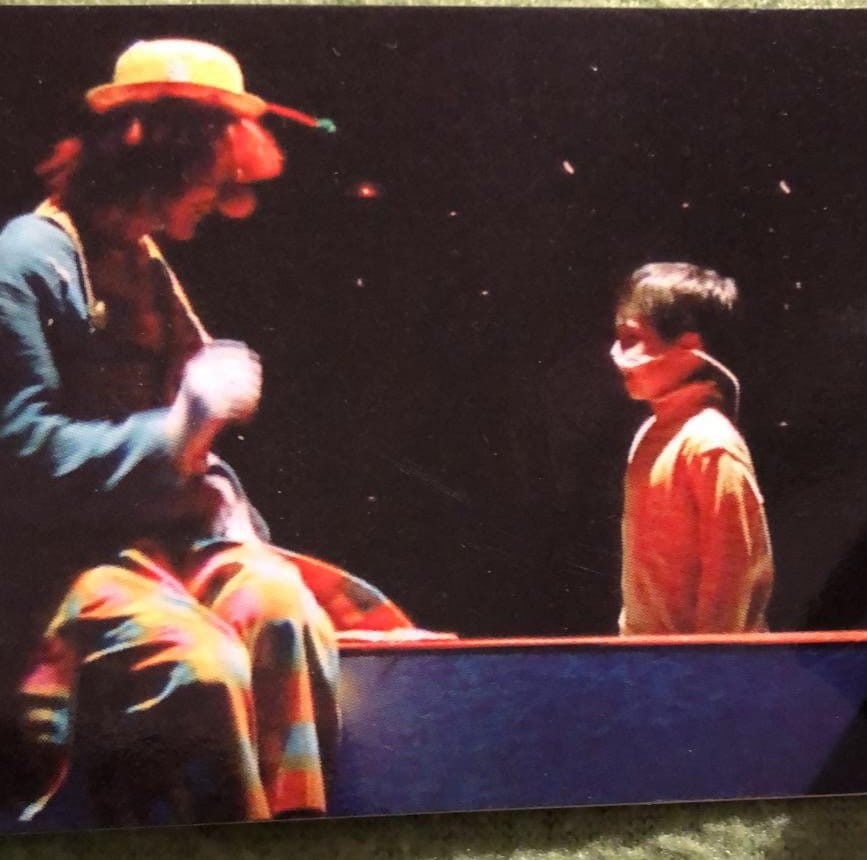
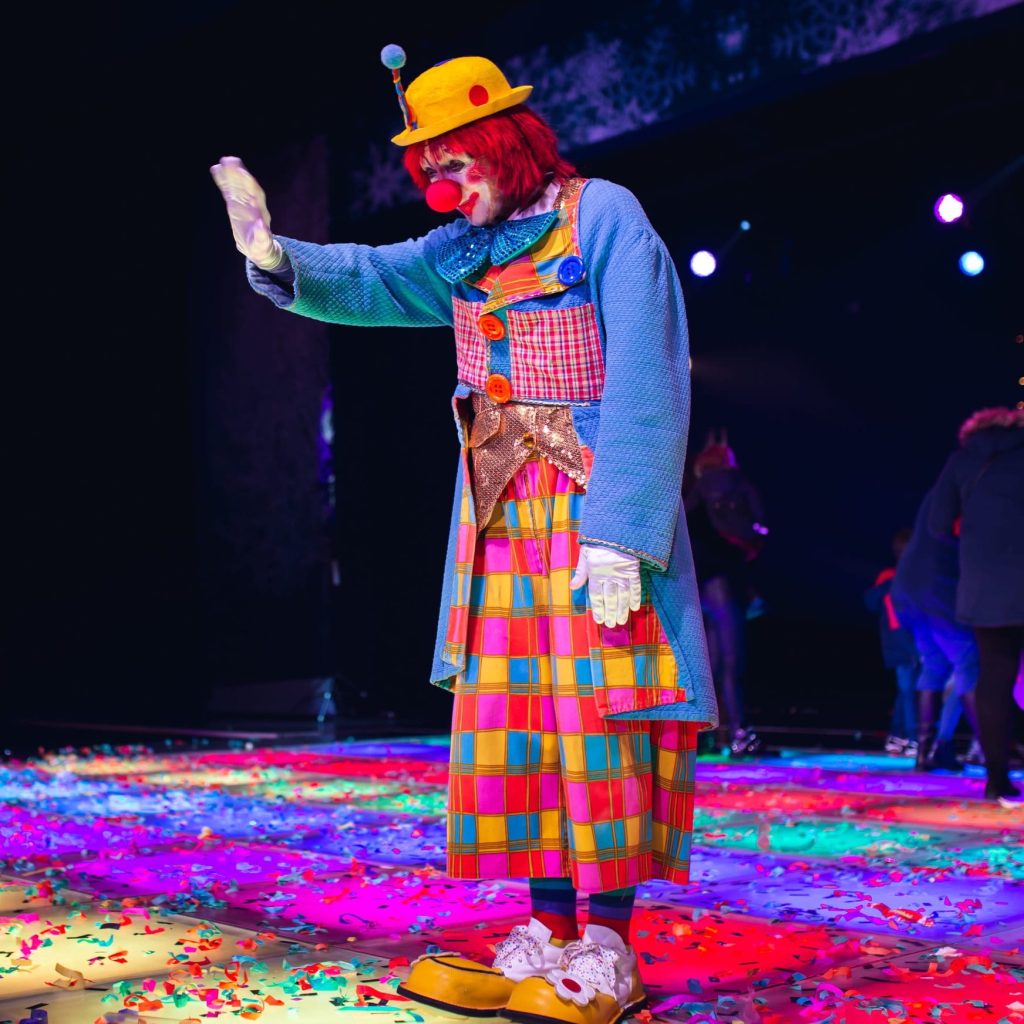
In the second year, Francien doubled attendance to 300 children. In the third year, she welcomed 600 children. Each year, she kept doubling the numbers—until one day she received another call from the Palace.
“I was summoned to meet Prince Rainier again. He said to me, ‘Madame, I can’t keep up with you. Every year you double the number of children, and I simply can’t double the presents. This year, you’ll have to fly with your own wings.’ I thanked him and replied, ‘I understand, but Monseigneur, I will still need your help.’ He reassured me, ‘Don’t worry, I’ll continue to support you in every way I can.’”
Prince Rainier officially granted High Patronage for the following years, till his passing away in 2005, to Les Enfants de Frankie and personally asked H.S.H. Prince Albert II to continue His legacy and support for the cause.
Motivated by this extraordinary backing, Francien kept growing the event. By the early 2000s, the Chapiteau de Fontvieille was no longer big enough, and the celebration moved to the Grimaldi Forum.
“By 2004, we had 4,000 children in a single day. But I was still determined to double that—and eventually we reached 8,000 children attending. That’s when I received a call from the Monaco police. They told me the event had completely blocked the entire city. Hundreds of buses were pouring in, and Monaco simply wasn’t equipped for such a massive event at the time. Of course, things are different now—the Principality has a much stronger infrastructure to support large-scale gatherings.”
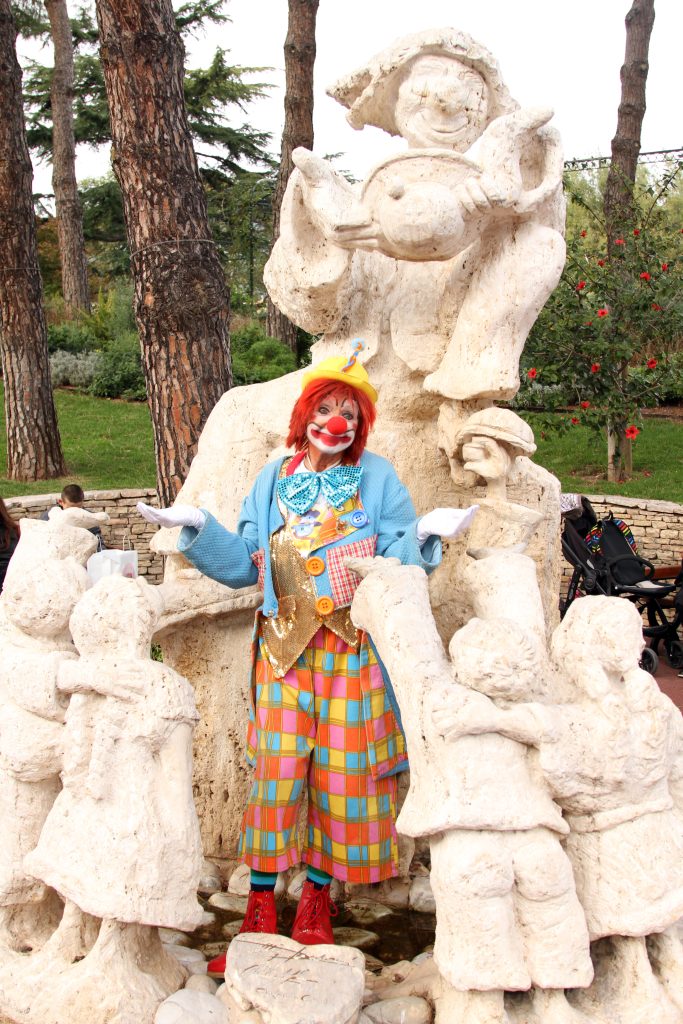
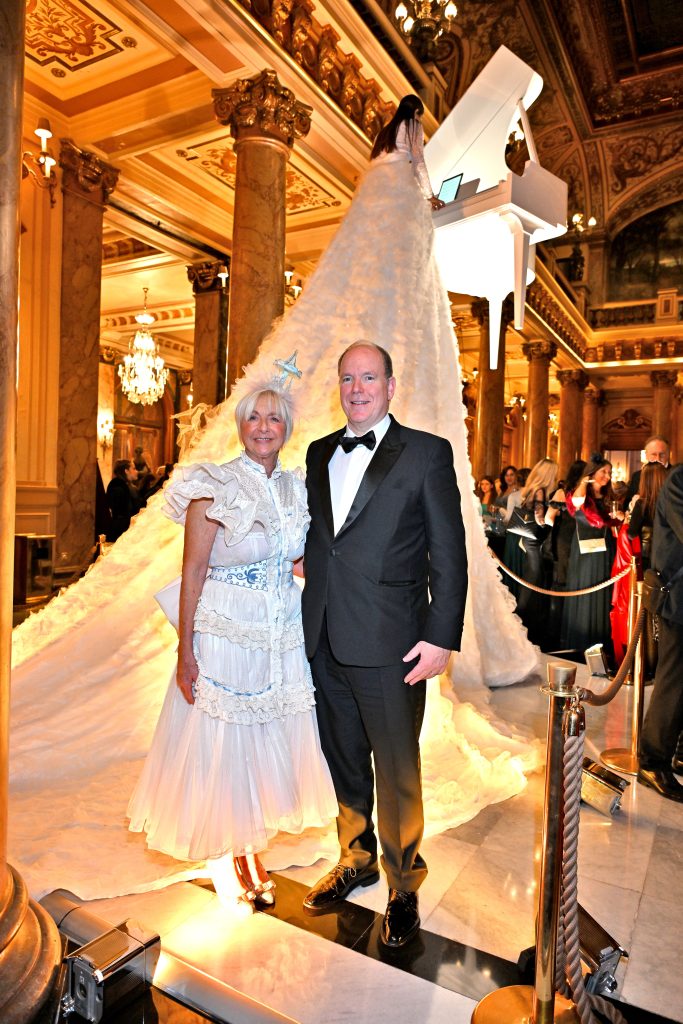
The Legacy
Over the last three decades, Francien Giraudi has built an extraordinary legacy—transforming a personal vision into a globally recognized association that brings hope and joy to thousands.
“I am deeply grateful that life brought me to my husband, who believed in me and allowed me to be myself. He’s a very reserved person, rarely seen at public events, but that never stopped him from supporting me and sharing his connections. I believe we created a beautiful synergy—we supported each other’s goals in life.”
Having experienced firsthand what it means to raise a sick child, Francien’s dedication is nothing short of remarkable. More than 160,000 children have benefited from the association’s funded activities and projects. Through her leadership, Les Enfants de Frankie has continuously worked to provide a more joyful, peaceful environment for children in need—expanding its reach and partnering with key institutions to amplify its impact.
“It was truly a journey that started from nothing. I always put the children first, because having had a sick child, I knew what it meant. Then I discovered how many other mothers shared that experience. When your child is unwell, it becomes your entire world.”
One of the most emotionally difficult moments for Francien has always been when the life of a child is tragically cut short. As she reflects, “We must see these children as ‘Angels’—here for a brief time—but it’s our duty to help them live the best life possible, however long or short.”
Today, Les Enfants de Frankie works with more than 215 organizations, including healthcare providers, social care institutions, and child protection services.
Since 2023, the Association has had the honor of being placed under the Honorary Presidency of H.S.H. Prince Albert II of Monaco.
Each year, it proudly hosts “Noël de Frankie” (Frankie’s Christmas)—a signature event that brings thousands of underprivileged children to Monaco for an unforgettable day. The celebration features a bespoke stage show starring the beloved mascot clown Frankie, and includes the joyful distribution of Christmas gifts and festive treats for every child.
Without question, Francien Giraudi stands among the most respected philanthropic figures in the Principality of Monaco. Her compassion, courage, and unwavering drive have created not just an Association—but a movement of hope, love, and lasting impact.
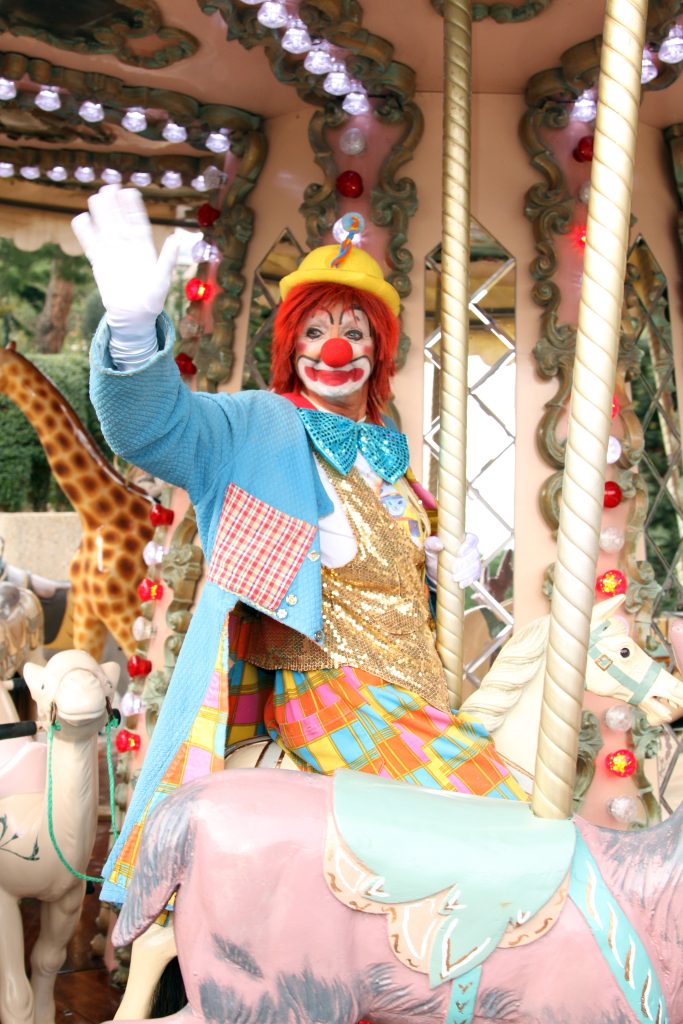
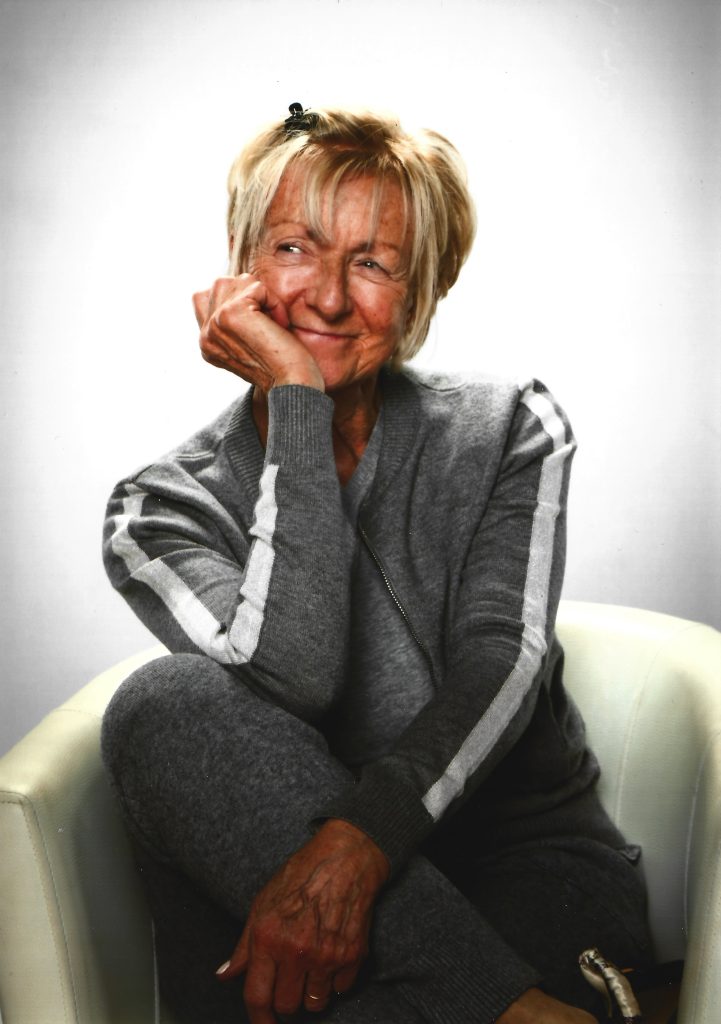




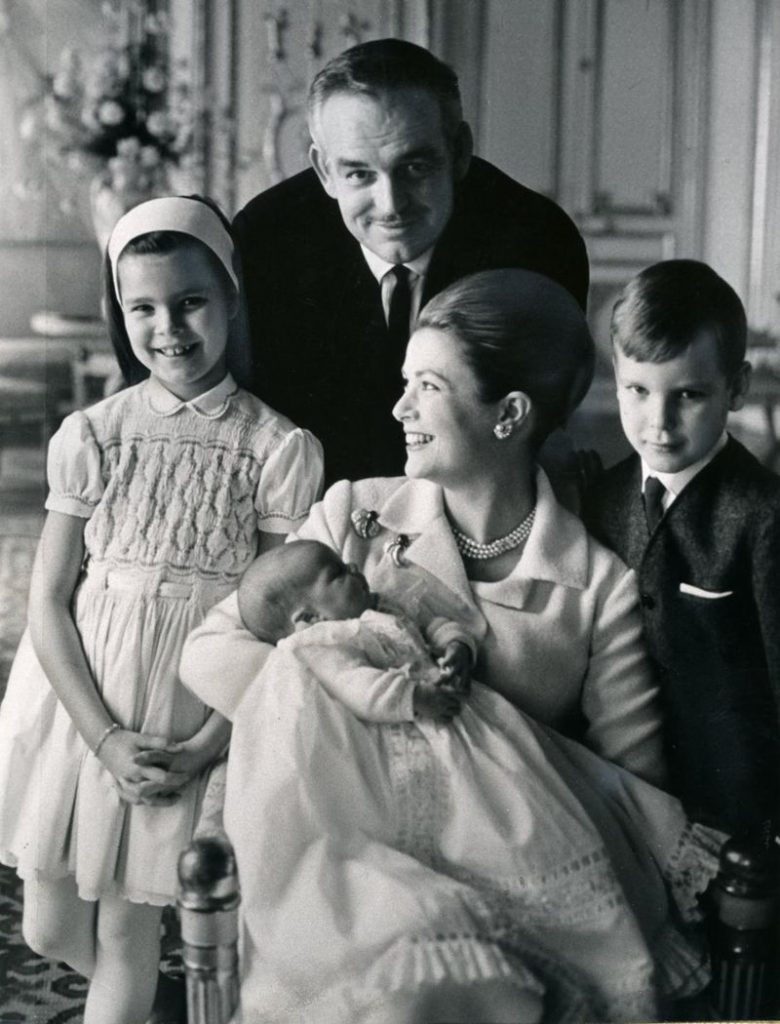

Responses